Coffee, one of the world’s most beloved beverages, comes in an array of delightful forms, from the robust espresso to the leisurely cold brew.
Its widespread popularity is a testament to its unique appeal and versatility.
However, an often overlooked aspect of coffee enjoyment is understanding its shelf life, particularly when stored in the fridge.
Coffee’s shelf life varies depending on its form – whole beans, ground, or brewed – and storage method.
Properly stored in the fridge, brewed coffee can last 3-4 days, while whole beans and ground coffee have a longer shelf life.
Let’s dive into this question a bit further.

Understanding Coffee Shelf Life
Key Factors Influencing Shelf Life
When it comes to coffee, its shelf life isn’t just a number.
It’s influenced by several key factors that can either preserve its freshness or hasten its decline.
Let’s break these down:

Brewing Method
The way you brew your coffee plays a significant role.
For instance, cold brews tend to last longer than hot drip coffee due to their brewing process and concentration.
Storage Conditions
Where and how you store your coffee can make a big difference.
Factors like air, moisture, heat, and light can impact its quality.
Airtight containers in a cool, dark place are ideal for storage.
Additives
What you add to your coffee can also affect its shelf life.
Plain black coffee will last longer than coffee with added milk or cream, which can spoil more quickly.
We’ll talk about milk and coffee a bit more later on.
The Science Behind Coffee Degradation
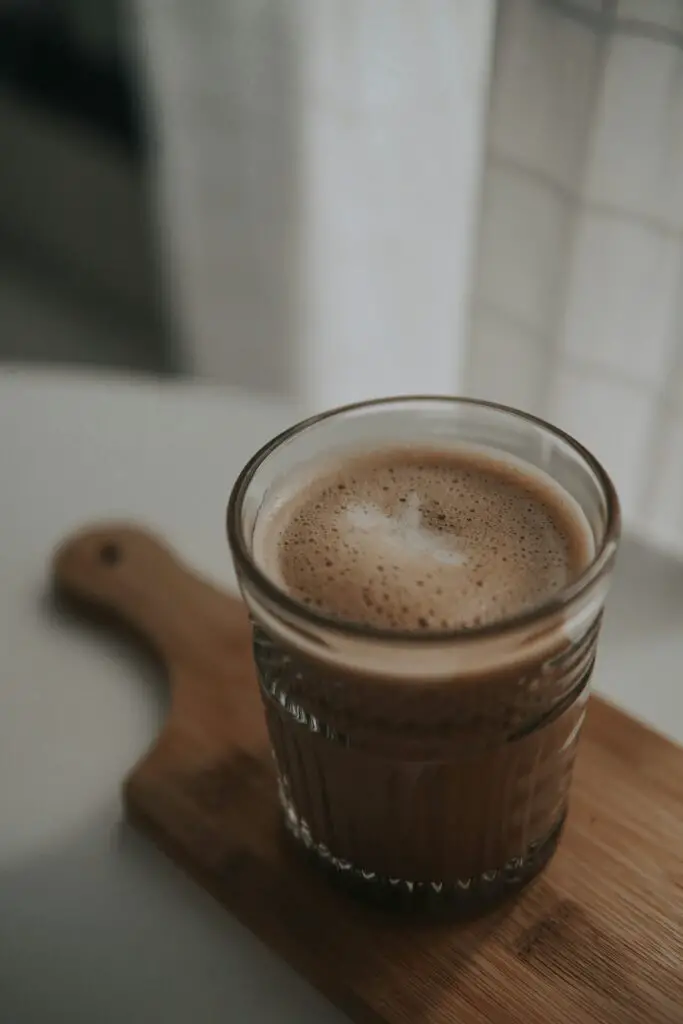
Over time, coffee undergoes a natural degradation process.
Here’s what happens:
Oxidation
When coffee is exposed to air, it starts to oxidize.
This process alters the coffee’s oils and aromatic compounds, leading to a stale taste.
Moisture and Mold
Moisture is coffee’s enemy.
It can lead to mold growth, especially in ground coffee, which has a larger surface area exposed to air and moisture.
Light and Heat
These elements can speed up the degradation process.
They can cause the coffee oils to go rancid, changing the flavor profile drastically.
Types of Coffee and Their Shelf Life in the Fridge
Whole Coffee Beans
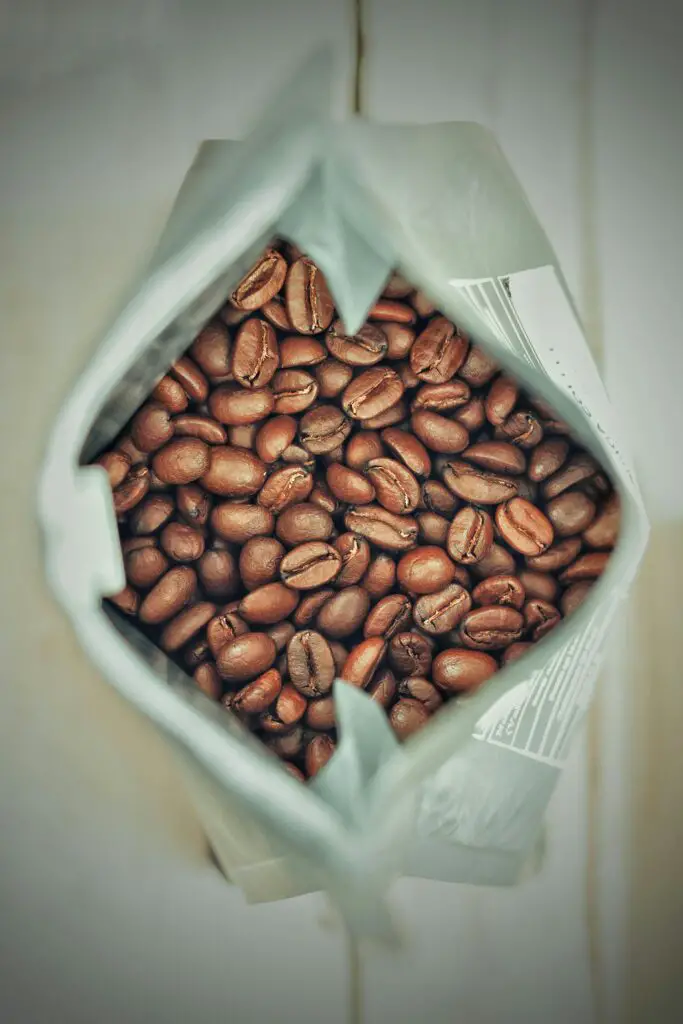
The longevity of whole coffee beans can vary. In an unopened package, they can stay fresh for months, often up to six months or more.
Once opened, however, their freshness starts to diminish, but they can still last for a few weeks if stored correctly.
To keep whole beans fresh, store them in an airtight container away from direct sunlight and heat.
A cool, dark cupboard is ideal.
Avoid the fridge or freezer, as these environments can introduce moisture and odors.
Ground Coffee
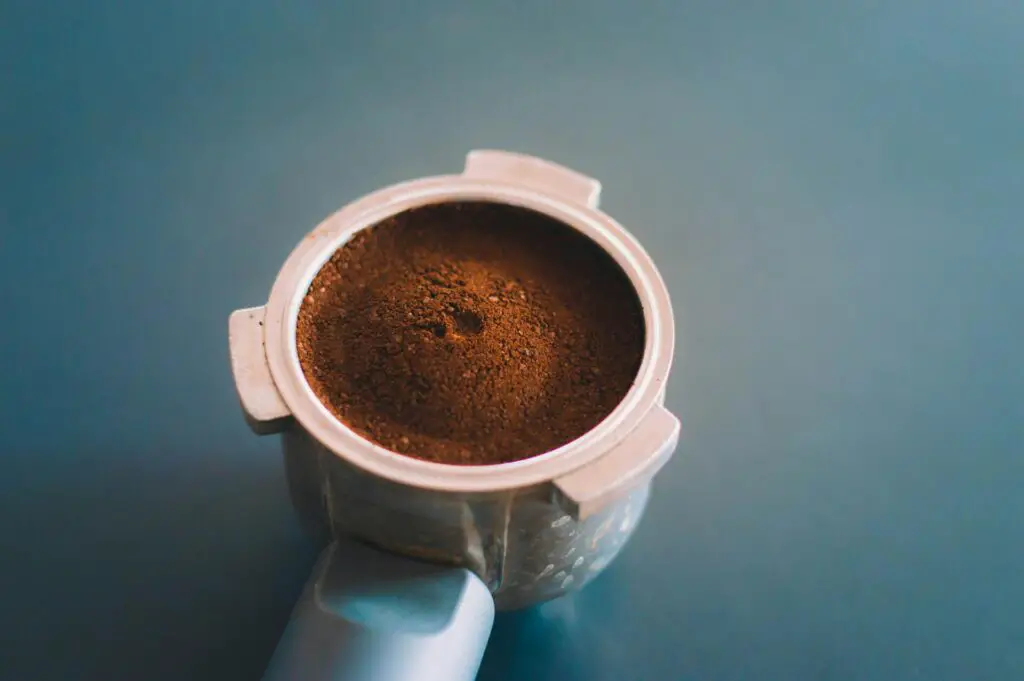
Ground coffee has a shorter shelf life due to its increased exposure to air and moisture.
An unopened package can stay fresh for a few months, but once opened, it’s best to use it within a couple of weeks.
Like whole beans, ground coffee should be stored in an airtight container in a cool, dark place.
If you live in a particularly humid environment, consider storing your ground coffee in the fridge to protect it from moisture, but be aware this might alter its flavor slightly.
Instant Coffee
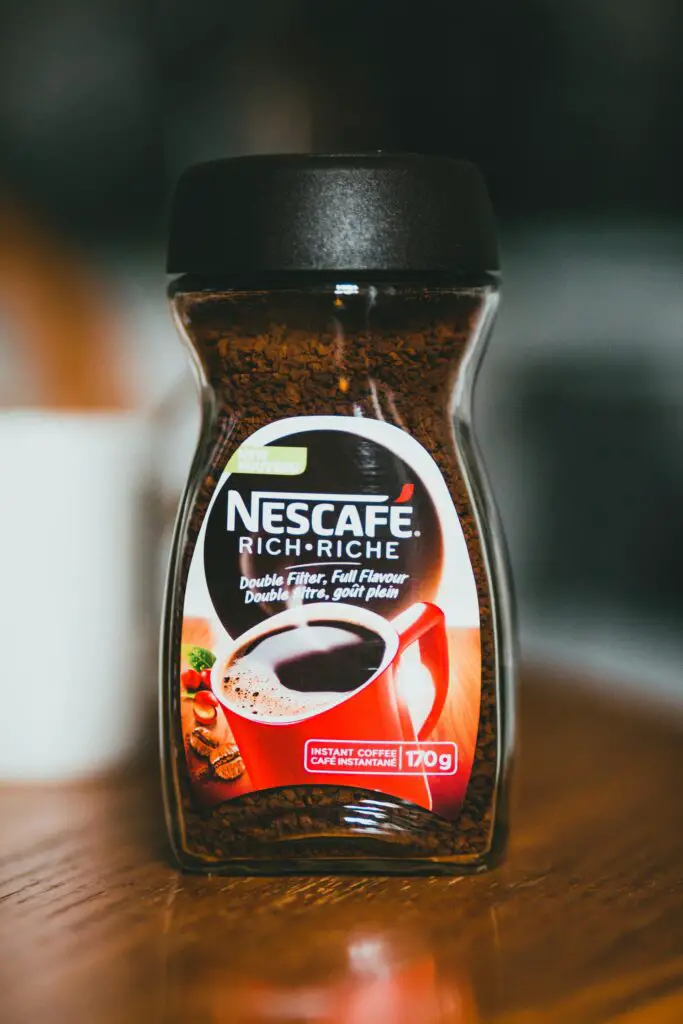
Instant coffee is the champion of shelf life in the coffee world.
Unopened, it can last for years without significant degradation.
Once opened, it can still last for months, thanks to its dry, processed nature.
Keep instant coffee in its original container with a tightly sealed lid.
Store it in a cupboard away from heat and light.
Refrigeration is not necessary and not recommended.
Coffee Pods
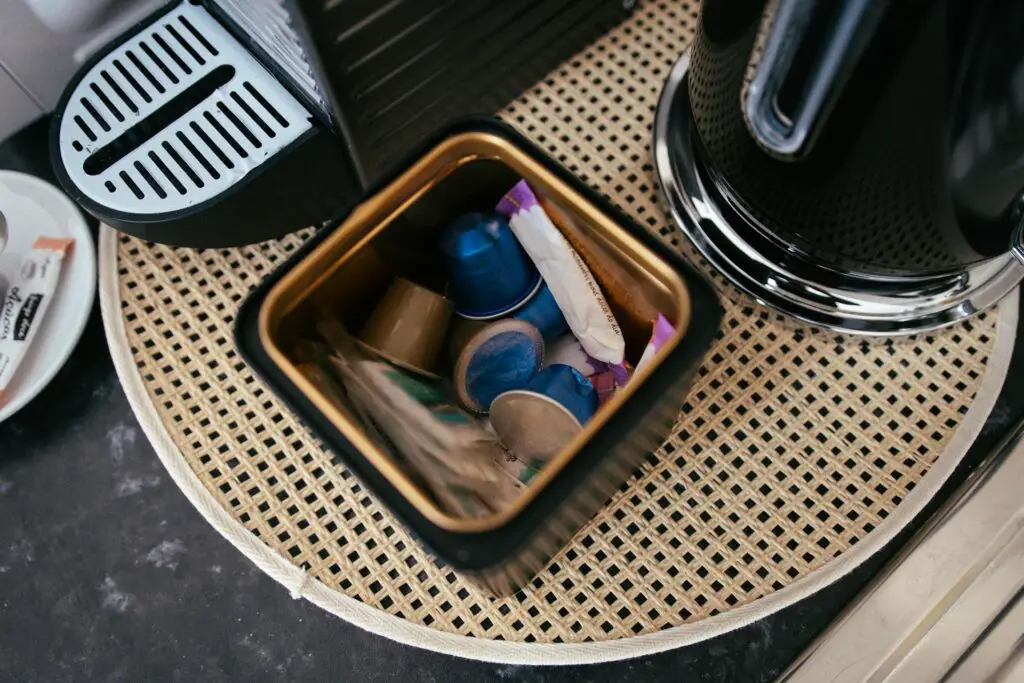
Coffee pods, thanks to their sealed packaging, can maintain freshness for quite a long time.
They usually come with a “best by” date, which can be a good guide, but they often last beyond that if the seal hasn’t been broken.
Store your coffee pods in a cool, dry place.
There’s no need to refrigerate or freeze them.
Just keep them away from direct sunlight and any strong odors that could affect their taste.
Brewed Coffee Variants and Fridge Storage
Iced Coffee

- Optimal Storage Duration: Iced coffee, when stored in the fridge, is best enjoyed within 24 hours. After this, the flavor can start to change, losing its vibrant freshness.
- Storage Methods and Flavor Impact: Store iced coffee in an airtight container to maintain its taste. Remember, the ice in your coffee will melt over time, diluting the flavor. To avoid this, remove the ice if you’re not planning to drink it right away.
Cold Brew
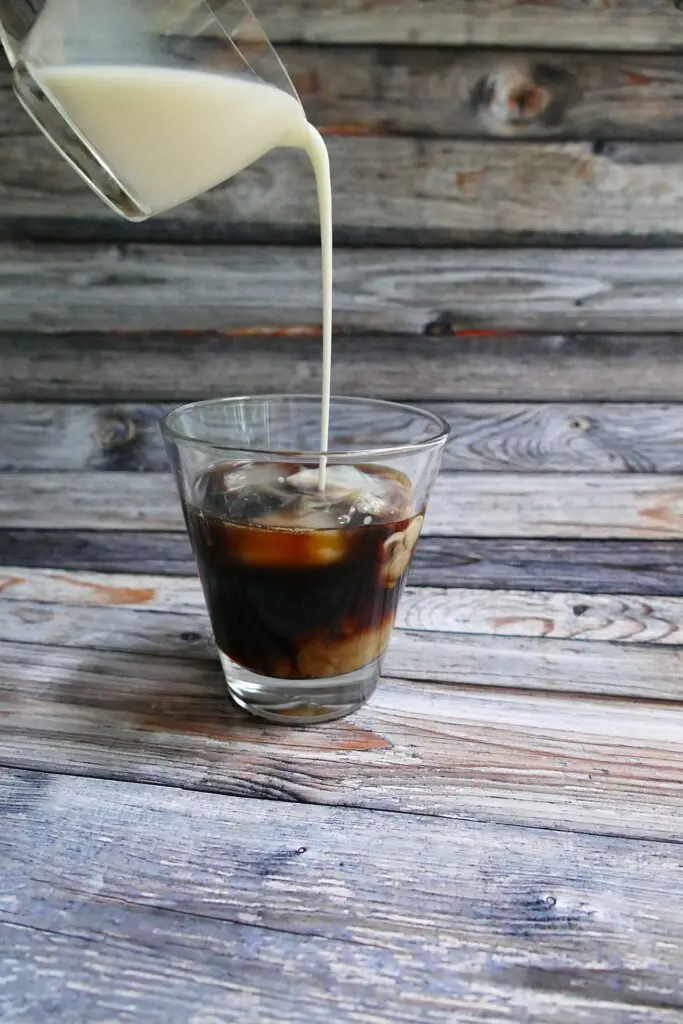
- Shelf Life: Cold brew coffee, known for its smoothness and low acidity, has a longer shelf life. The concentrate can last up to two weeks in the fridge. If it’s already diluted, aim to drink it within a week for the best flavor.
- Creative Storage Ideas: For a fun twist, try freezing cold brew concentrate into ice cubes. These can be added to drinks for a quick, flavorful cold brew without the wait or dilution.
Stovetop Coffee

- Duration and Storage: Stovetop coffee, similar to espresso but less concentrated, can last in the fridge for about 3-4 days. However, its rich flavor is best enjoyed fresh.
- Best Storage Practices: If you need to store it, use an airtight container and keep it in the fridge. This method helps preserve its robust flavor for a little longer.
Espresso

- Storing Espresso-Based Drinks: Espresso and its variants, like lattes or cappuccinos, are best consumed fresh. However, if you need to store them, they can last in the fridge for up to 48 hours.
- Recommendations: Store in a tightly sealed container to maintain flavor and prevent absorption of other odors. Be mindful that milk-based espresso drinks may spoil faster, so always give them a sniff test before enjoying them.
The Role of Airtight Containers in Preserving Coffee Freshness
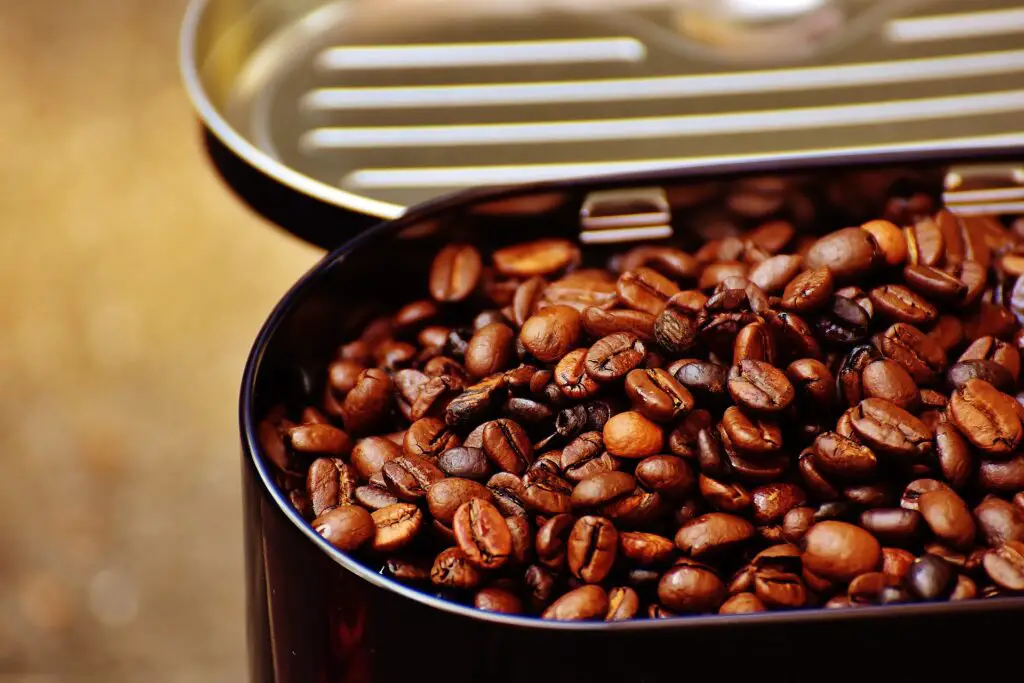
The use of airtight containers is pivotal in preserving the freshness and extending the shelf life of coffee.
These containers play a crucial role in protecting coffee from its biggest enemies: air, moisture, and odors.
By creating a seal that prevents air from entering, airtight containers effectively slow down the oxidation process, which can degrade the coffee’s essential oils and robust flavors.
They also keep out moisture, which is vital for preventing mold growth and maintaining the coffee’s texture and integrity.
Furthermore, airtight containers shield coffee from external odors, ensuring that the beans or grounds retain their unique aroma and flavor profile.
Whether it’s whole beans, ground coffee, or even brewed coffee, storing them in an airtight container in a cool, dark place is a simple yet effective way to ensure every cup you brew tastes as fresh as possible.
Pros and Cons of Freezing Coffee
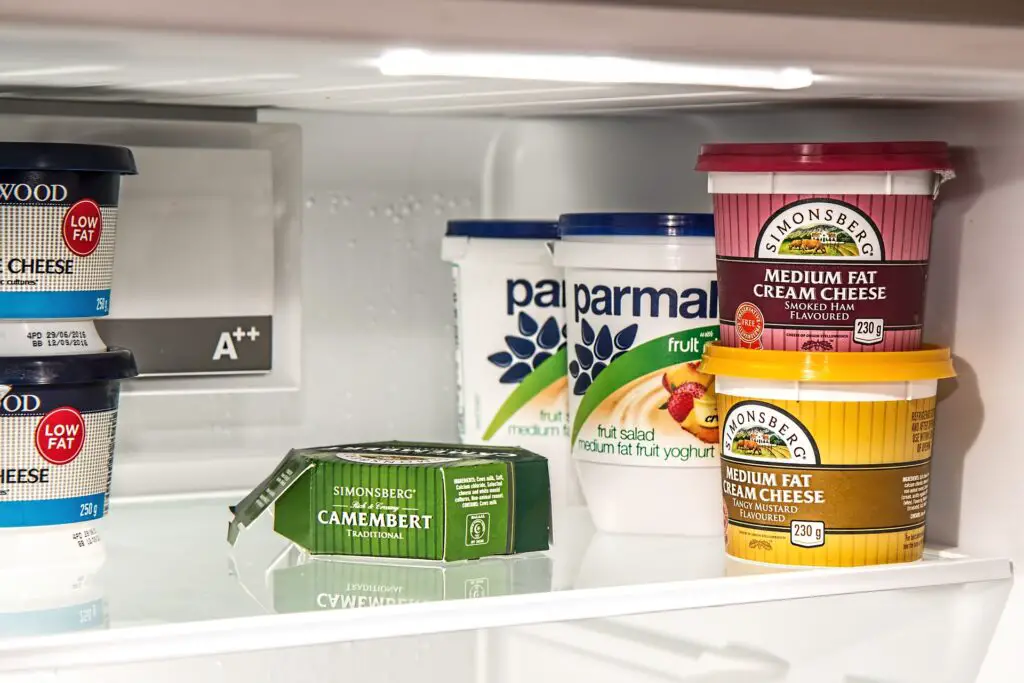
Freezing coffee is a topic of debate among coffee enthusiasts, offering both benefits and drawbacks.
On the plus side, freezing can significantly extend the shelf life of coffee, especially for whole beans, by slowing down the processes of oxidation and degradation.
This makes it a practical option for those who buy in bulk but consume slowly.
However, the downside is that freezing can alter the delicate flavor profile of coffee.
The process can cause condensation to form on the beans when they’re taken out of the freezer, leading to moisture issues that can dampen the taste and aroma.
Additionally, coffee beans are porous and can absorb odors from other items in the freezer, potentially affecting their purity.
For ground coffee, these effects are more pronounced due to its greater surface area.
Using a Thermos as an Alternative to Refrigeration

A thermos can be an excellent alternative to refrigerating coffee, especially for those who want to enjoy their brew warm throughout the day.
Using a thermos preserves the temperature and flavor of the coffee for extended periods, often up to several hours, without the need for reheating.
This method is particularly useful for people on the go or those who prefer to brew their coffee in the morning and enjoy it gradually.
A high-quality thermos effectively seals in the heat and aroma, maintaining the coffee’s freshness and preventing exposure to air, which can lead to oxidation and flavor degradation.
Unfortunately, some of the original flavors will inevitably diminish regardless of the method used.
Nonetheless, you’ll enjoy a more flavorful cup of coffee compared to storing it in the fridge.
Special Considerations
Coffee with Milk or Creamer
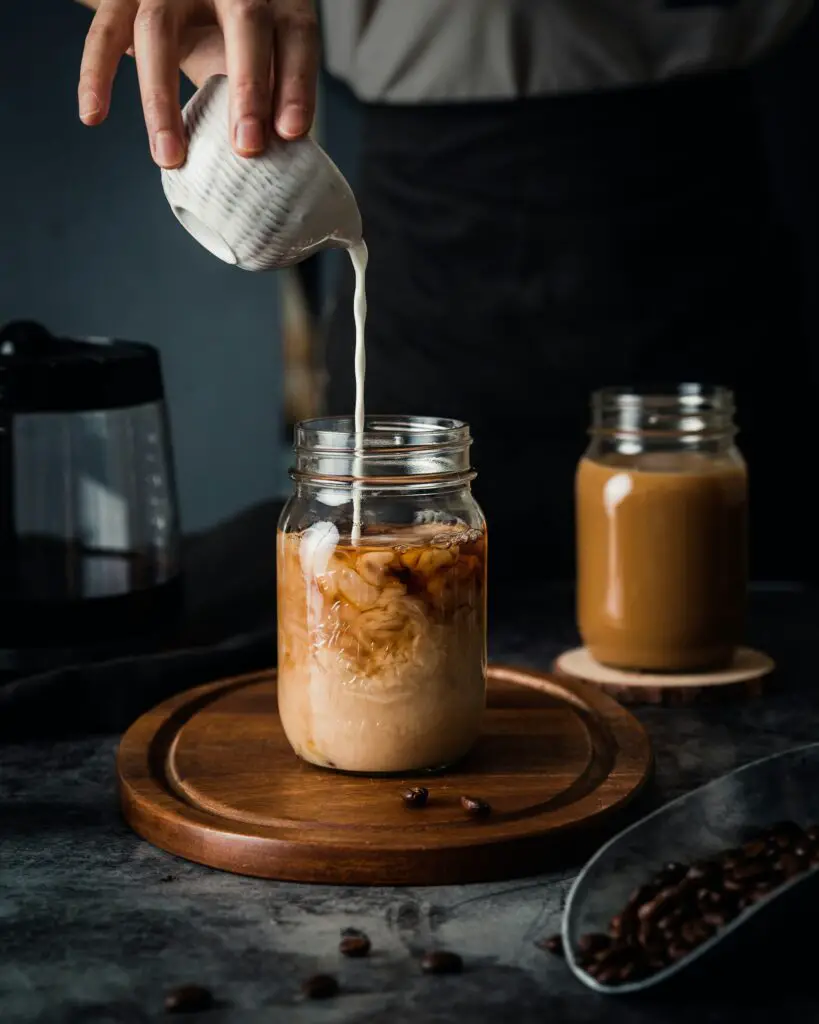
When you add milk or creamer to coffee, the shelf life shortens significantly.
Ideally, consume dairy-based coffee drinks within 1-2 days when stored in the fridge.
The presence of dairy increases the risk of spoilage due to bacterial growth.
Always store milk or creamer-added coffee in an airtight container in the fridge.
This helps to keep it fresh and prevents it from absorbing other flavors or odors from the fridge.
Before drinking, always check for any signs of spoilage, like a sour smell or curdling.
Reheating Stored Coffee
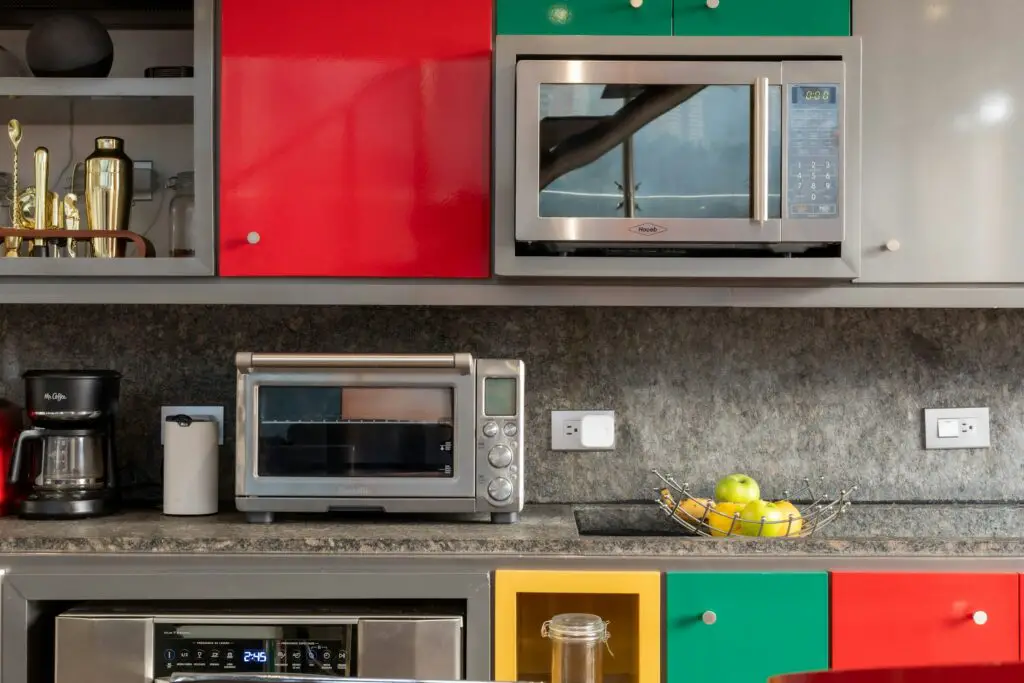
Reheating coffee can affect its flavor, often leading to a more bitter taste.
This is due to further oxidation and breakdown of the coffee’s oils and compounds when exposed to heat again.
If you decide to reheat your coffee, do it only once and ensure it reaches a hot enough temperature to kill any potential bacteria.
Use a stovetop or microwave, and heat it until it’s steaming hot, but avoid boiling it, as this can further degrade the taste.
Never reheat coffee that has been sitting out for more than a day or has dairy in it that’s been stored for more than two days.
Signs of Spoilage
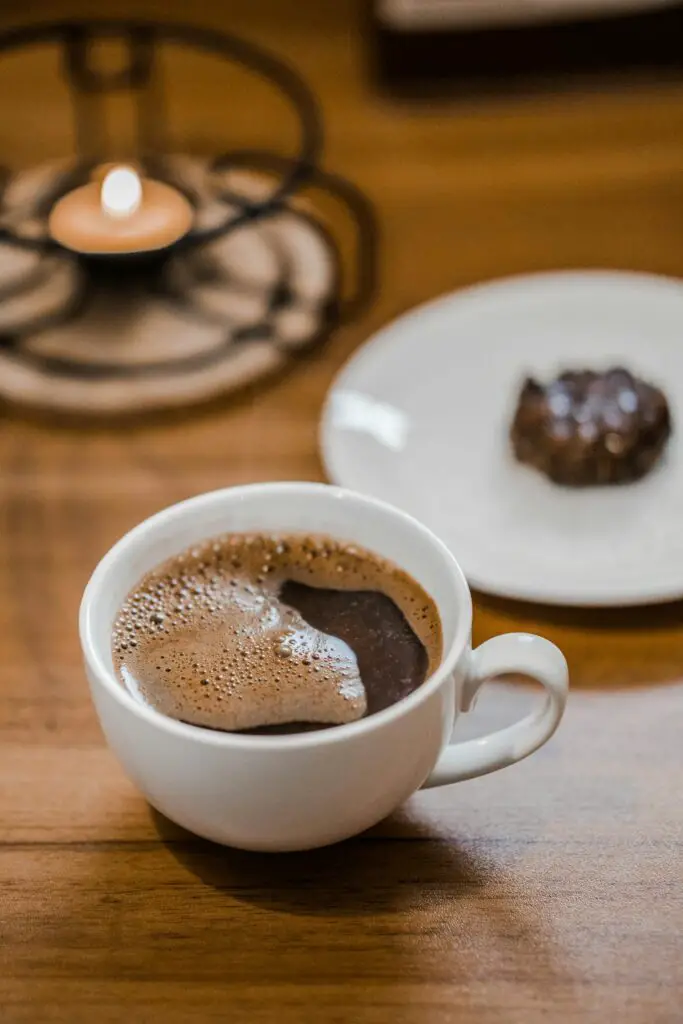
Identifying Spoiled Coffee
Before drinking that cup of coffee that’s been sitting on the counter for a while, safety first.
Here are some signs to look out for:
- Smell: Fresh coffee has a rich, inviting aroma. If your coffee starts to smell off, sour, or just not like coffee anymore, it’s a sign that it’s spoiled.
- Mold: This is a clear indicator. If you see any mold, especially in ground coffee or on the surface of brewed coffee, it’s time to throw it away.
- Taste: If the coffee tastes unusually bitter, sour, or just plain bad, it’s best not to drink it.
- Appearance: Any strange colors or a cloudy appearance in your coffee can also be a sign of spoilage.
Health Implications of Consuming Expired Coffee
Drinking spoiled coffee can lead to health issues, although they are generally not severe.
However, it’s always better to err on the side of caution.
If your coffee shows any signs of spoilage, it’s best to discard it and brew a fresh batch.
Here’s what you might experience:
- Digestive Problems: The most common issue is stomach upset, including nausea or discomfort.
- Food Poisoning: In rare cases, especially with dairy-based coffee drinks, there could be a risk of food poisoning if harmful bacteria have grown.
Innovative Ways to Use Leftover Coffee
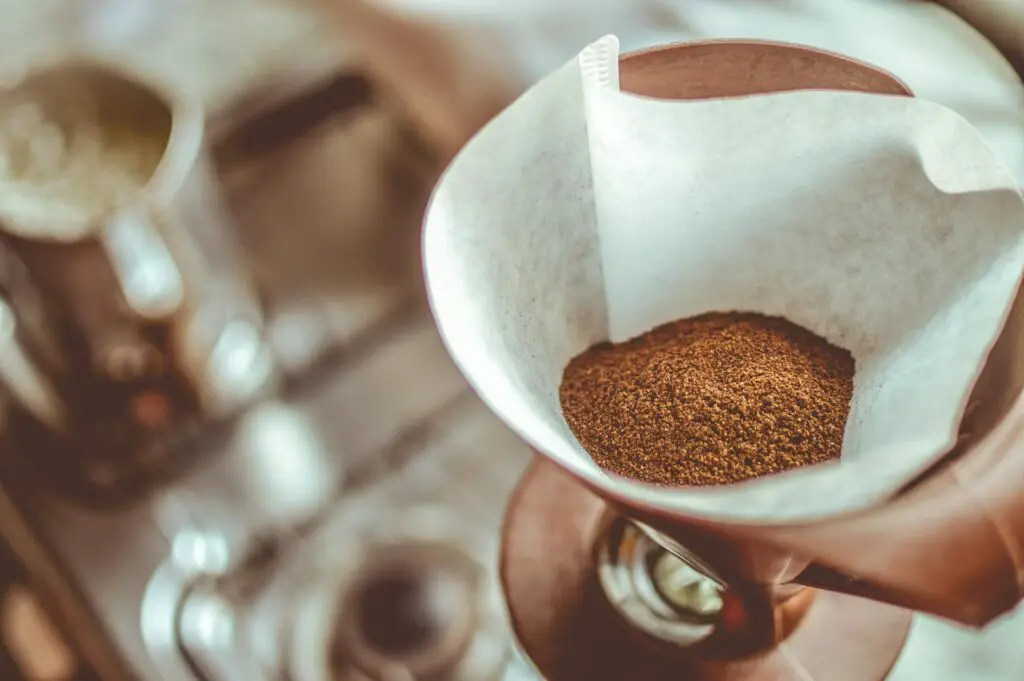
Getting Creative with Leftover Coffee
Don’t let your leftover coffee go to waste!
There are many creative and delicious ways to repurpose it.
Here are some ideas:
Coffee Ice Cubes
Pour your leftover coffee into ice cube trays and freeze.
These coffee cubes are perfect for chilling iced coffee without diluting the flavor.
Coffee Marinades
Coffee can be a great addition to marinades.
Its rich, deep flavor complements beef and pork exceptionally well.
Just mix it with some spices and let your meat soak up the flavors.
Baking with Coffee
Coffee can add a wonderful depth to baked goods.
Use it in recipes for cakes, brownies, or muffins to give them a unique twist.
Recipes and Tips for Cooking and Baking
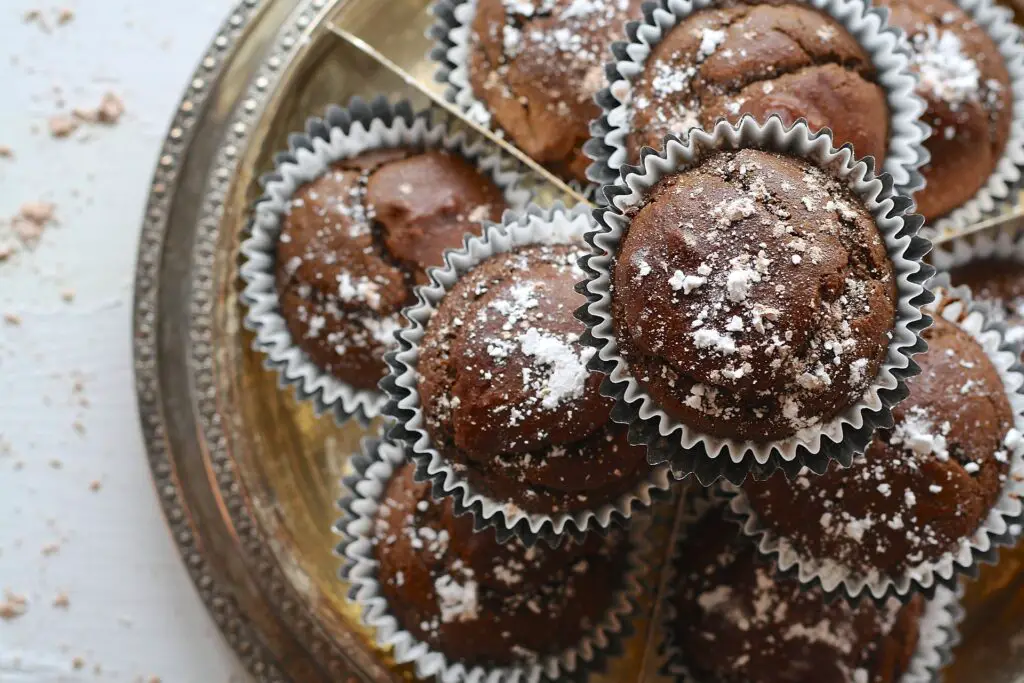
Coffee-Infused Desserts
Try adding coffee to your chocolate desserts, like chocolate cake or chocolate mousse, to enhance the chocolate flavor.
Coffee Smoothies
Blend your leftover coffee with milk, a banana, and a touch of honey for a delicious coffee smoothie.
Homemade Coffee Syrup
Boil down your coffee with sugar to create a simple coffee syrup.
It’s perfect for flavoring desserts, cocktails, or even drizzling over pancakes.
Coffee Oatmeal
Give your morning oatmeal an energizing kick by cooking it in coffee instead of just plain water.
Conclusion
Understanding the various factors that affect coffee’s shelf life, from storage conditions to brewing methods, is crucial for any coffee lover.
Whether you’re storing whole beans, ground coffee, or your favorite brewed variant, remember that the right storage techniques can significantly impact freshness and flavor.
Exploring alternatives like airtight containers or a thermos can also enhance your coffee experience.
Ultimately, the essence of enjoying coffee at its best lies in how well you preserve its rich, unique flavors and aromas from the moment it’s brewed to when you savor that last sip.
FAQ’s
Does coffee in the fridge go bad?
Yes, coffee in the fridge can go bad.
Brewed coffee with milk or creamer should be consumed within 1-2 days, while black coffee can last 3-4 days.
Always check for signs of spoilage like off smells or mold.
How long does cold brew coffee last in the fridge?
Cold brew coffee can last in the fridge for about 7-10 days if it’s a concentrate.
Once diluted, it’s best to consume it within 3-4 days to enjoy its optimal flavor.
How long can I keep iced coffee in the fridge?
Iced coffee is best enjoyed within 24 hours of storage in the fridge.
After this period, the flavor may start to diminish, especially if the ice has melted and diluted the coffee.
Does coffee last longer in the fridge or freezer?
Coffee generally lasts longer in the freezer than in the fridge.
Whole beans can be stored in the freezer for several months without significant loss of flavor.
However, freezing can alter the taste of ground coffee.
What is the best way to store coffee in the fridge?
The best way to store coffee in the fridge is in an airtight container to protect it from moisture, odors, and air.
Let your hot coffee cool down slightly before placing it in an airtight container in the fridge.
Stored this way, black coffee can last for one to two weeks in a cool setting, though be aware that its flavor may gradually diminish over time.
This is particularly important for ground coffee and brewed coffee variants.
How Long Does Ground Coffee Last Opened?
Once opened, ground coffee can last up to two weeks when stored properly in a cool, dry place.
If stored in the fridge, it should be kept in an airtight container to maintain freshness.


